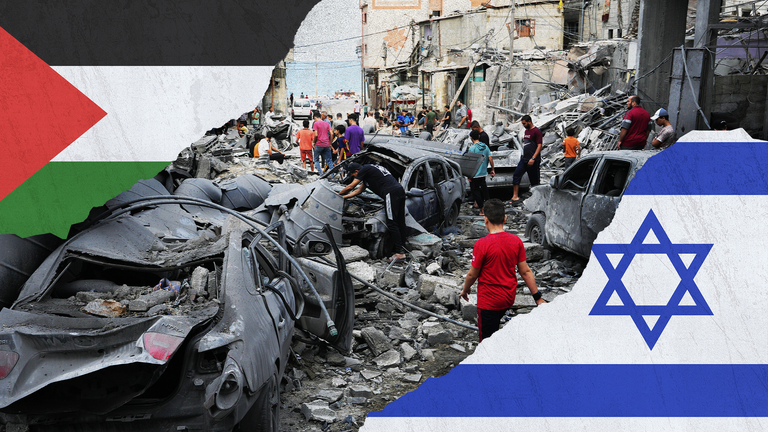Introduction
The Israel-Palestine conflict is a topic that
has garnered international attention for decades. In this article, we will
delve deep into the historical background, current issues, and potential
solutions to this complex and longstanding geopolitical crisis. Our aim is to
provide you with a comprehensive understanding of the Israel-Palestine
conflict.
Historical Context
The roots of the Israel-Palestine conflict can be traced
back to the late 19th century when Jewish immigrants began settling in Palestine,
then part of the Ottoman Empire. This marked the beginning of tensions between
Jewish and Arab communities over land and identity.
Early Conflicts
The early 20th century saw increased clashes between Jewish
and Arab populations, leading to the Balfour Declaration of 1917, in which the
British government expressed support for a "national home for the Jewish
people" in Palestine.
Post-World War II
After World War II, the conflict escalated as the United
Nations approved the partition plan in 1947, which aimed to divide Palestine
into separate Jewish and Arab states. This decision intensified hostilities and
eventually led to the 1948 Arab-Israeli War.
Contemporary Issues
The Israel-Palestine conflict continues to impact the Middle
East and global politics. Several contemporary issues contribute to the ongoing
tensions:
Occupation of Palestinian Territories
One of the central issues is the Israeli occupation of the
West Bank and Gaza Strip, which has lasted for decades. This has led to
widespread protests and clashes.
Settlements and Borders
Disputes over Israeli settlements in the West Bank and the
delineation of borders remain contentious topics, hindering the peace process.
Security Concerns
Both Israelis and Palestinians face security concerns,
including terrorist attacks and military operations, further fueling mistrust
and fear.
Potential Solutions
While the Israel-Palestine conflict is deeply rooted and
complex, there are potential solutions that have been proposed by various
parties:
Two-State Solution
The most widely discussed solution involves the creation of
separate Israeli and Palestinian states, with mutually agreed-upon borders.
One-State Solution
Some advocate for a single, democratic state where Israelis
and Palestinians share equal rights. However, this option faces significant
challenges.
International Mediation
International organizations and countries have attempted to
mediate the conflict, but a lasting resolution remains elusive.
The Israel-Palestine conflict is a multifaceted issue with
deep historical roots and complex contemporary challenges. Understanding the
complexities of this conflict is crucial for anyone interested in global
politics and peace in the Middle East.
In conclusion, the path to resolving the Israel-Palestine conflict is arduous, but not impossible. It requires the willingness of both parties to engage in meaningful dialogue and compromises. As the world watches, it is our hope that a peaceful and just solution can be found, bringing stability and prosperity to this troubled region.




No comments:
Post a Comment